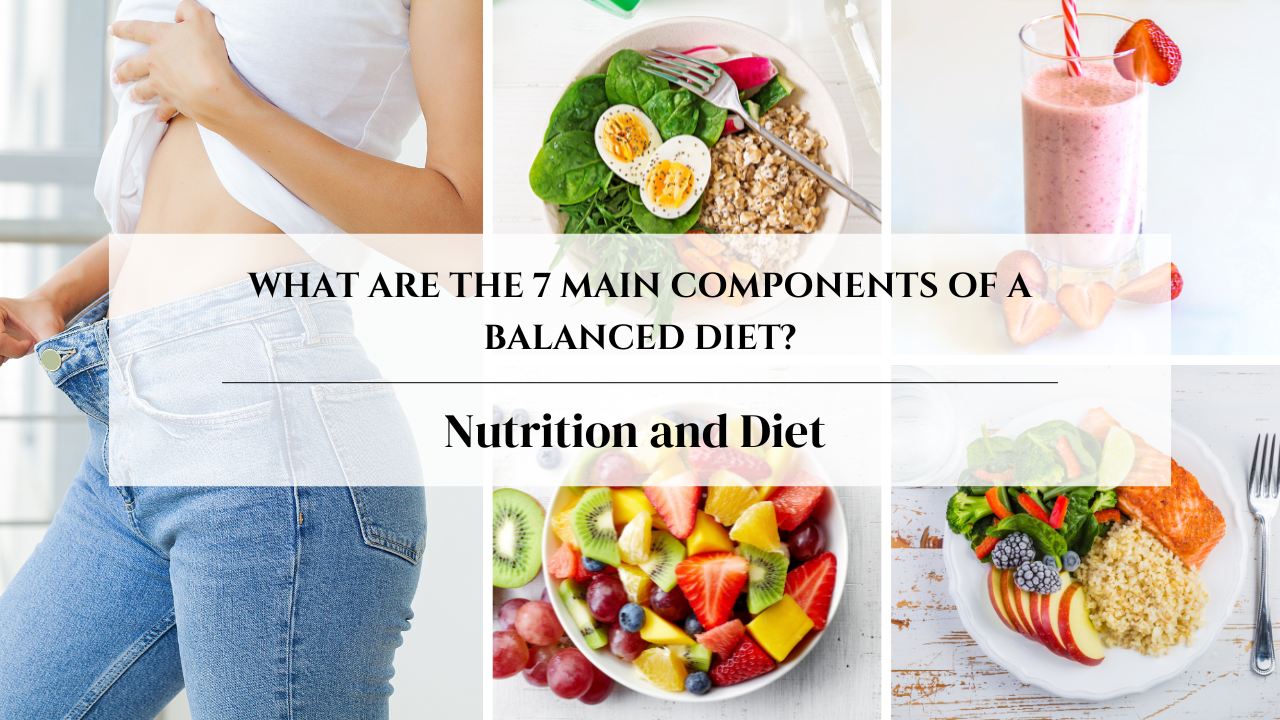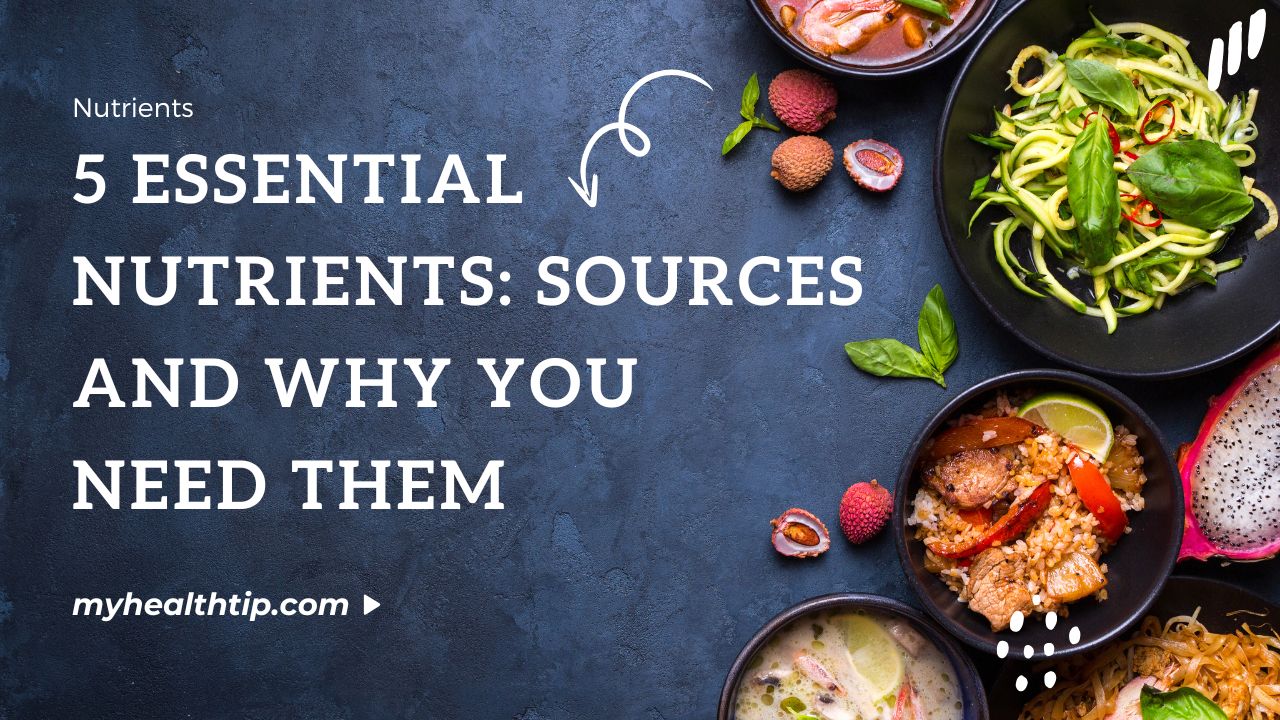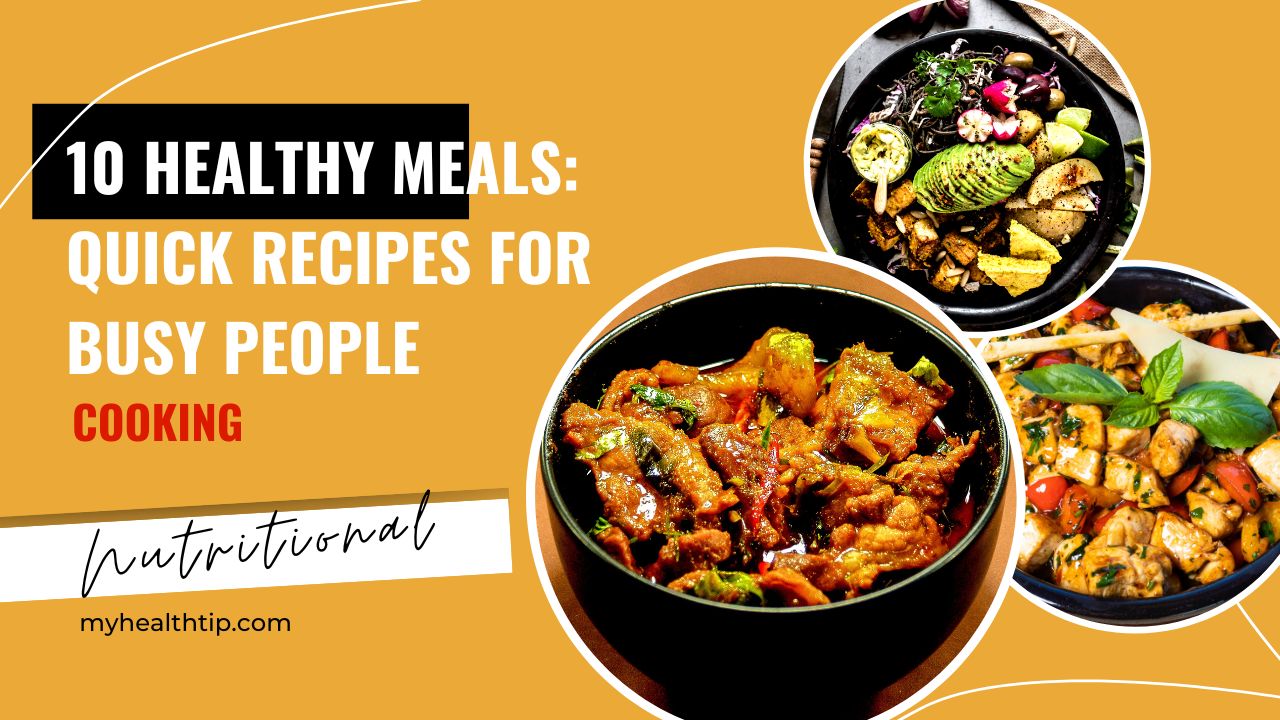Maintaining a balanced diet is crucial for overall health and well-being. A balanced diet ensures that your body gets the essential nutrients it needs to function correctly. But what exactly makes up a balanced diet? Let’s explore the seven main components of a balanced diet and understand their importance in promoting a healthy lifestyle.
Table of Contents
1. Carbohydrates: The Energy Providers
Carbohydrates are a vital part of a balanced diet. They are the body’s primary source of energy. When you consume carbohydrates, your body breaks them down into glucose, which fuels your brain, muscles, and other organs.
Sources of Carbohydrates
- Whole grains (brown rice, quinoa, oats)
- Fruits (bananas, apples, berries)
- Vegetables (potatoes, corn, peas)
- Legumes (beans, lentils, chickpeas)
Importance of Carbohydrates
Including the right type and amount of carbohydrates in your diet helps maintain energy levels, supports physical activity, and keeps your metabolism active. Aim for complex carbohydrates, which provide sustained energy, rather than simple sugars that can cause energy crashes.

2. Proteins: The Building Blocks
Proteins play a crucial role in building and repairing tissues, producing enzymes and hormones, and supporting immune function. A balanced diet must include an adequate amount of protein to maintain muscle mass and overall body function.
Sources of Proteins
- Lean meats (chicken, turkey, lean beef)
- Fish and seafood
- Eggs
- Dairy products (milk, cheese, yogurt)
- Plant-based sources (tofu, tempeh, nuts, seeds)
Importance of Proteins
Proteins are essential for growth and repair. They help in muscle recovery after exercise and are vital for maintaining healthy skin, hair, and nails. Including a variety of protein sources ensures you get a range of amino acids necessary for optimal health.
3. Fats: The Essential Nutrients
Fats are often misunderstood, but they are an essential part of a balanced diet. They provide energy, support cell growth, protect organs, and help the body absorb certain nutrients.
Sources of Healthy Fats
- Avocados
- Nuts and seeds (almonds, walnuts, chia seeds)
- Olive oil and other healthy oils (coconut oil, flaxseed oil)
- Fatty fish (salmon, mackerel, sardines)
Importance of Fats
Healthy fats are crucial for brain health, hormone production, and reducing inflammation. They also help keep you full and satisfied, which can prevent overeating. Focus on unsaturated fats and limit the intake of saturated and trans fats.
4. Vitamins: The Vital Nutrients
Vitamins are organic compounds that are essential for various bodily functions. They play a key role in energy production, immune function, blood clotting, and other critical processes.
Sources of Vitamins
- Fruits and vegetables (oranges, berries, leafy greens)
- Whole grains
- Dairy products
- Lean proteins
Importance of Vitamins
A balanced diet rich in vitamins helps prevent deficiencies that can lead to health issues. For example, vitamin C is crucial for immune function, while vitamin D supports bone health. Eating a diverse range of foods ensures you get all the necessary vitamins.

5. Minerals: The Body’s Building Blocks
Minerals are inorganic elements that the body needs to perform various functions, from building strong bones to transmitting nerve impulses.
Sources of Minerals
- Dairy products (calcium)
- Red meat and leafy greens (iron)
- Nuts and seeds (magnesium)
- Fish and seafood (zinc)
Importance of Minerals
Minerals support numerous physiological functions. Calcium and phosphorus are vital for strong bones and teeth, iron is crucial for oxygen transport in the blood, and magnesium helps with muscle and nerve function. A balanced diet ensures an adequate intake of these essential minerals.
6. Fiber: The Digestive Aid
Fiber is a type of carbohydrate that the body cannot digest. It helps regulate the body’s use of sugars, helping to keep hunger and blood sugar in check.
Sources of Fiber
- Whole grains (brown rice, oats, whole wheat)
- Fruits (apples, pears, berries)
- Vegetables (broccoli, carrots, Brussels sprouts)
- Legumes (beans, lentils, peas)
Importance of Fiber
Fiber is crucial for digestive health. It helps prevent constipation, reduces the risk of digestive disorders, and supports a healthy gut microbiome. A diet high in fiber can also help control blood sugar levels and reduce the risk of heart disease.
7. Water: The Essential Hydrator
While not a nutrient in the traditional sense, water is a critical component of a balanced diet. It makes up a significant portion of the body and is essential for numerous bodily functions.
Importance of Water
Water helps maintain the balance of bodily fluids, aids in digestion, absorption, and transportation of nutrients, regulates body temperature, and supports overall cellular function. Drinking enough water is crucial for overall health and well-being.
Tips for Staying Hydrated
- Drink at least 8 glasses of water a day
- Consume water-rich foods (fruits and vegetables)
- Limit intake of caffeinated and sugary drinks

Creating a Balanced Diet: Practical Tips
Achieving a balanced diet involves incorporating a variety of foods from each of the seven main components. Here are some practical tips to help you get started:
- Plan Your Meals: Planning meals ahead of time ensures you include a variety of nutrient-rich foods.
- Portion Control: Be mindful of portion sizes to avoid overeating, especially when it comes to high-calorie foods.
- Choose Whole Foods: Opt for whole, unprocessed foods to maximize nutrient intake.
- Variety is Key: Include a range of different foods to ensure a diverse intake of nutrients.
- Moderation: While it’s important to enjoy a variety of foods, moderation is crucial, especially for foods high in sugars and fats.
- Listen to Your Body: Pay attention to hunger and fullness cues to avoid overeating and ensure you are meeting your nutritional needs.
Conclusion
Understanding the seven main components of a balanced diet is the first step toward achieving optimal health. By incorporating carbohydrates, proteins, fats, vitamins, minerals, fiber, and water into your daily diet, you can support your body’s needs and promote overall well-being. Remember, a balanced diet is not about strict limitations but about nourishing your body with the right nutrients to thrive. Make informed choices, enjoy a variety of foods, and maintain a healthy lifestyle for a happier, healthier you.
By following these guidelines and prioritizing a balanced diet, you’ll be well on your way to improved health and vitality.





